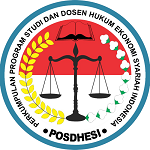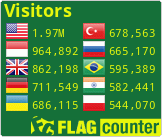PENETAPAN PEMBIAYAAN LEASING SYARIAH DI FIF KOTA METRO PERSPEKTIF HUKUM EKONOMI SYARIAH
DOI:
https://doi.org/10.32332/muamalah.v1i2.4999Keywords:
Leasing, Sanctions, ShariaAbstract
Indonesia's financial development is also marked by the diversification of financial products, namely by the emergence of non-bank financing institutions that can be used as alternatives to meet the community's needs for the desired financing. The development of non-bank financial institutions that offer various forms of financing facilities will further expand the provision of alternative financing for the business world and the needs of the Indonesian people in the Indonesian economic system. This study aims to determine the determination of Islamic financing and the mechanism of sanctions for late payments at the Metro City FIF. This type of research is field research (field research). While the nature of this research is descriptive. The data sources used are primary and secondary data sources. Data was collected using interview and documentation techniques. The data from the findings are described descriptively and analyzed using inductive thinking.
The results of this study indicate that the determination of Islamic financing in the Islamic system is not known as the interest system as an instrument to obtain profits for the company. Because basically sharia financing in conducting business transactions uses a sale and purchase contract or known as murabahah, which is a contract used to procure an item by confirming the purchase price to the buyer and the buyer pays it in installments at a higher price as profit. The Sharia FIF mechanism if the consumer is unable to pay the installments then the goods will be withdrawn and resold. So that the FIF Syariah does not pay attention and even tends to eliminate the risk aspects that will be encountered when the customer/consumer occurs in the event of a delay in payment
Downloads
References
Downloads
Published
Issue
Section
License
All articles in the Mu'amalah: Jurnal Hukum Ekonomi Syariah can be disseminated on condition that they still include the identity of the article and the source (Mu'amalah). The publisher is not responsible for the contents of the article. The content of the article is the sole responsibility of the author.
Authors who publish this subject agree to the following terms:
First, the Authors retain copyright and grant the journal rights from the first publication with the work simultaneously licensed under a Creative Commons Attribution-ShareAlike 4.0 International License that allows others to share the work with an acknowledgement of the work's authorship and initial publication in this journal.
Secondly, the authors can enter into a separate or an acknowledgement of its initial (e.g., post-institutional repository or publish it in a book) publication in this journal.
![]()
Third, the authors are permitted and encouraged to post their work online (e.g., in institutional repositories or on their website) before publishing work is cited.








